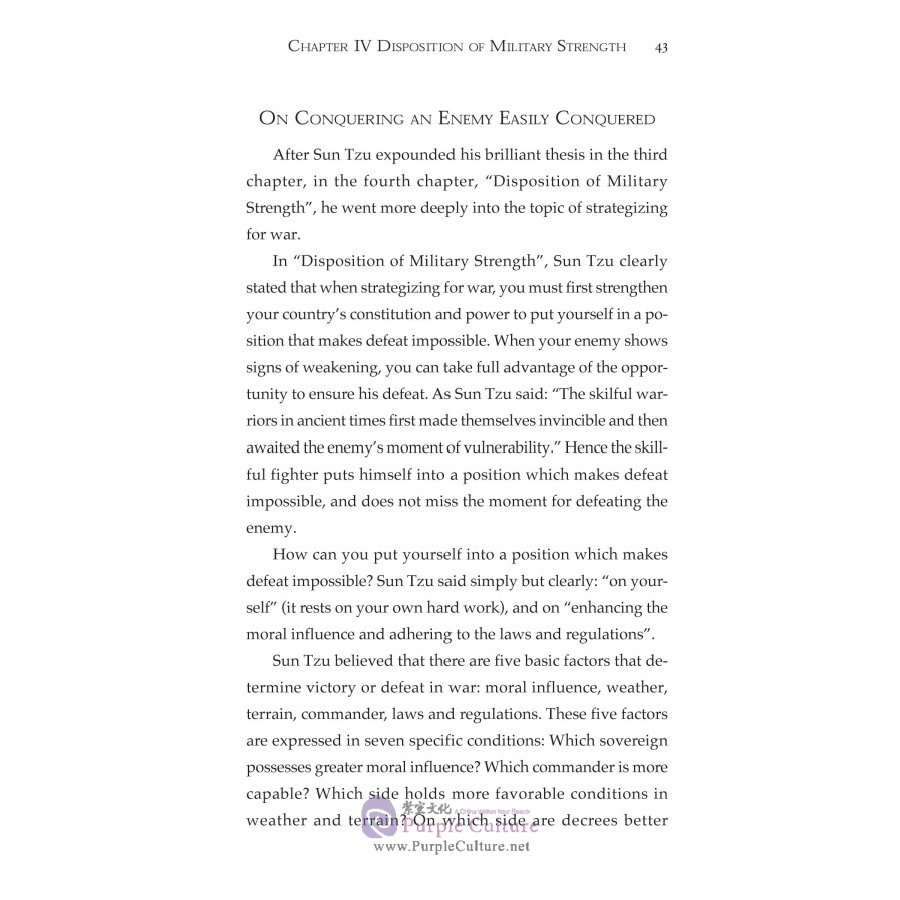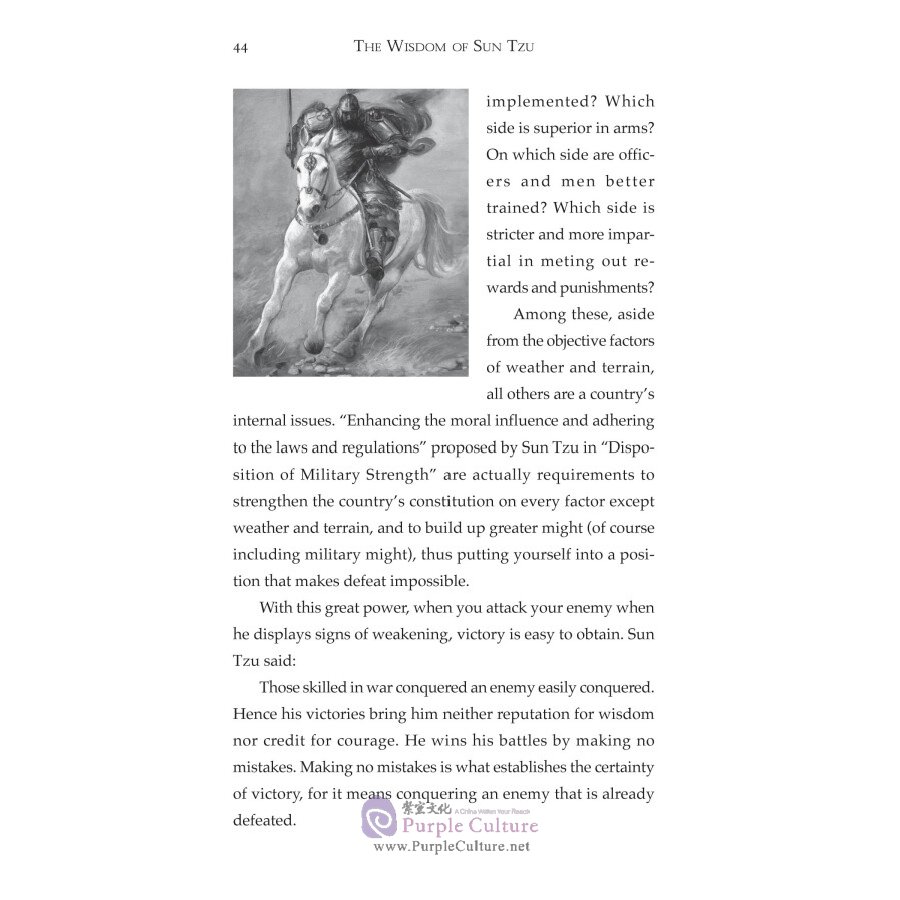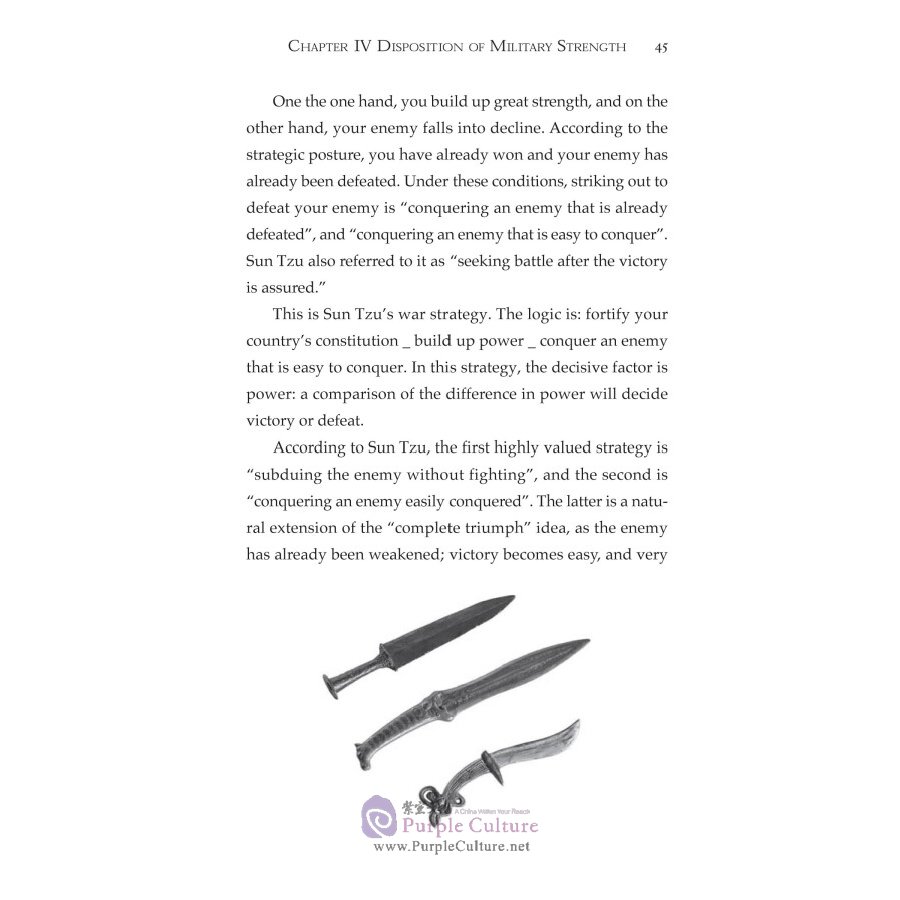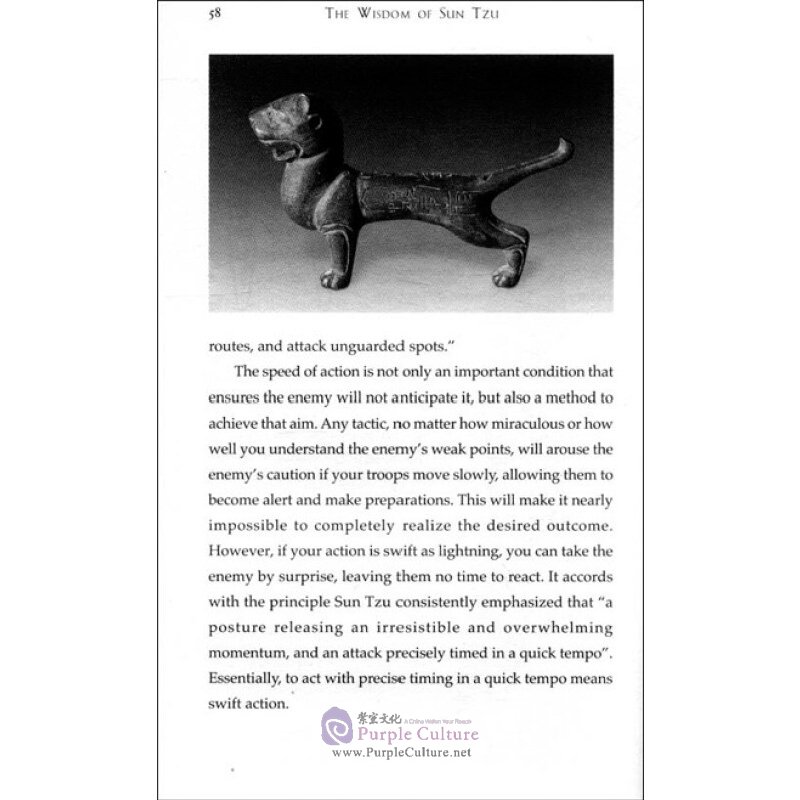Sun Tzu's The Art of War is a Chinese military treatise that was written by Sun Tzu in the 6th century BC, during the Spring and Autumn period. Composed of 13 chapters, each of which is devoted to one aspect of warfare, it is said to be the definitive work on military strategies and tactics of its time, and still one of the basic texts. The Art of War is one of the oldest and most successful books on military strategy. It has had an influence on Eastern military thinking, business tactics, and beyond. Sun Tzu suggested the importance of positioning in strategy and that position is affected both by objective conditions in the physical environment and the subjective opinions of competitive actors in that environment. He thought that strategy was not planning in the sense of working through an established list, but rather that it requires quick and appropriate responses to changing conditions. Planning works in a controlled environment, but in a changing environment, competing plans collide, creating unexpected situations. The book was translated into the French language in 1772 by French Jesuit Jean Joseph Marie Amiot, and into English by British officer Everard Ferguson Calthrop in 1905. It likely influenced Napoleon, and leaders as diverse as Mao Zedong, General Vo Nguyen Giap, Baron Antoine-Henri Jomini, and General Douglas MacArthur have claimed to have drawn inspiration from the work. The Art of War has also been applied to business and managerial strategies.




Foreword
After the advent of the 6th century B.C., a new era of spiritual creativity was welcomed, bringing with it an explosion of new thoughts. In Greece, there were Thales and Pythagoras, who initiated the development of philosophy and science. Sakyamuni arose in India and created Buddhism. In China, Lao Tzu, Confucius and Sun Tzu revealed the prologue to an era of free thought and innovation beginning in the late Spring and Autumn Period.
Sun Tzu’s Art of War is one of the achievements that sprung forth from this explosion of thoughts.
Compared to the theoretical creations of other great thinkers of that age (in the East as well as the West) in philosophy, politics, science, religion and other fields, Sun Tzu’s theoretical creations in the military arena were unique but equally great. Together, their philosophical achievements had a huge and profound influence on the spiritual world and realistic world shaped by human beings themselves.
Since the birth of Sun Tzu’s Art of War in the late 6th century B.C., it became widely influential in China. At the beginning of the 1st century B.C., the great Chinese historian Sima Qian was quoted as saying: “In civilian discussions of military affairs, they inevitably refer to the thirteen chapters of Sun Tzu’s Art of War.” Clearly, this book was already very popular and respected at that time in China. By the 11th century A.D., a military school called Wuxue had been established by the Song Dynasty. The imperial government selected seven books from the military works of past dynasties to make up the curriculum. Under unified management, they were checked against authoritative texts, printed and published in 1080, and called the wu jing qi shu (seven books of the military canon). Among them, Sun Tzu’s Art of War held the primary position, solidifying its high standing in Chinese military science.
For thousands of years, the great volumes of ideas, categorizations, theses and judgments coming out of Sun Tzu’s Art of War have been the object of debate in traditional Chinese military science. Each successive dynasty and each successive generation’s military experts and military writings have continued to supplement and develop Sun Tzu’s Art of War theoretically, but fundamentally none has surpassed it. It could be said that Sun Tzu’s Art of War charted the development course for ancient China’s theory of war, establishing the foundational spirit of China’s traditional military philosophy.
In China’s recent history, Sun Tzu’s Art of War has continued to play an active role as an important source of ideas in the process of building a new model of military theory. For example, in many of Mao Zedong’s military writings, he used Sun Tzu’s words to illustrate his points; Mao also referred to many famous historical battles in China to back up his own opinion. The influence of China’s military heritage represented by Sun Tzu’s Art of War had provided Mao Zedong’s military thinking with a profound historical context. It was also an important factor in the uniquely Chinese character of Mao Zedong’s military thinking.